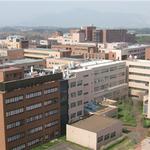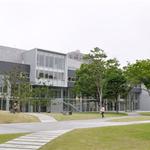Introduction to Chiba Institute of Technology
Overview
Chiba Institute of Technology is a private university located in Narashino City, Chiba Prefecture, Japan, founded in 1941. The school aims to cultivate high-quality engineering and technical talents with professional knowledge and practical ability, emphasizing students' practical operation ability and ability to solve practical problems. Chiba Institute of Technology has multiple faculties and graduate schools covering a wide range of engineering and technical fields, providing students with rich learning and research resources.
Campus
The main campus of Chiba Institute of Technology is located in Narashino City, Chiba Prefecture, with the following address:
Address: 3-10-1, Chiba Odori, Narashino City, Chiba Prefecture
Tel: +81-47-478-1111
Educational Philosophy
Chiba Institute of Technology adheres to the educational philosophy of "cultivating talents with a strong patriotism and a desire for knowledge in the vast world, who can shoulder the future of the country and Asia and contribute to world culture", emphasizing the cultivation of students' independent thinking ability and practical ability. The school is committed to cultivating high-quality engineering and technical personnel with professional knowledge and practical ability through a comprehensive education system, and to contributing to the development of society.
Disciplines and Majors
Chiba Institute of Technology has multiple faculties and graduate schools covering a wide range of fields:
Faculty of Engineering
Mechanical Science Department: Learn the basic theories and practical methods of mechanical engineering, and cultivate professionals who can work in manufacturing, mechanical design and other fields.
Electronic and Electronic Information Engineering Department: Learn the basic theories and practical methods of electrical engineering, electronic engineering and information engineering, and cultivate professionals who can work in power systems, communication technology, computer science and other fields.
Life and Environmental Sciences Department: Learn the basic theories and practical methods of life sciences and environmental sciences, and cultivate professionals who can work in biotechnology, environmental protection and other fields.
Architectural Urban Environment Department: Learn the basic theories and practical methods of architecture and urban planning, and cultivate professionals who can work in architectural design, urban planning and other fields.
Design Science Department: Learn the basic theories and practical methods of design science, and cultivate professionals who can work in product design, visual communication and other fields.
Department of Future Robotics: Learn the basic theories and practical methods of robotics engineering, and cultivate professionals who can work in the fields of robotics technology, automatic control, etc.
Department of Information Science
Department of Information Engineering: Learn the basic theories and practical methods of information technology and computer science, and cultivate professionals who can work in the fields of software development, data processing, etc.
Department of Information Network Works: Learn the basic theories and practical methods of network technology and communication engineering, and cultivate professionals who can work in the fields of network management, network security, etc.
Department of Social System Sciences
Department of Business Information Science: Learn the basic theories and practical methods of management information systems, and cultivate professionals who can work in the fields of enterprise information management, data analysis, etc.
Department of Planning and Management: Learn the basic theories and practical methods of enterprise management and project management, and cultivate professionals who can work in the fields of enterprise strategic planning, project management, etc.
Graduate School
Graduate School of Engineering
Department of Mechanical Science: Master's and Doctoral Programs
Department of Electrical, Electronic and Information Engineering: Master's and Doctoral Programs
Department of Life and Environmental Sciences: Master's and Doctoral Programs
Department of Architectural and Urban Environmental Sciences: Master's and Doctoral Programs
Department of Design Sciences: Master's and Doctoral Programs
Graduate School of Information Sciences
Department of Information Sciences: Master's and Doctoral Programs
Graduate School of Social Systems Sciences
Department of Management Engineering: Master's and Doctoral Programs
Specialized Courses
Faculty of Engineering: Study the basic theories and practical methods in the fields of mechanical engineering, electrical engineering, electronic engineering, information engineering, life sciences, environmental sciences, architecture and urban planning, design science, and robotics engineering.
Faculty of Information Sciences: Study the basic theories and practical methods in the fields of information technology, computer science, network technology, and communication engineering.
Department of Social Science: Learn basic theories and practical methods in the fields of management information systems, business management and project management.
Graduate School: In-depth research on advanced theories and practical methods in various engineering and technical fields, and cultivate professional talents who can work in academia, business, government agencies and other fields.
Practical Teaching
Chiba Institute of Technology attaches great importance to practical teaching, with advanced laboratories and practice bases, providing students with rich practical teaching resources. The school has established cooperative relations with many enterprises and research institutions, providing students with rich internship and practice opportunities. The school also has practical platforms such as simulated factories, laboratories, and studios, providing students with a platform for practical operation.
International Exchange
Chiba Institute of Technology actively participates in international exchange projects, has established cooperative relations with universities in many countries, and provides students with opportunities for overseas study and exchange. The school has an International Student Office to provide comprehensive support and services for international students.
Ranking
Chiba Institute of Technology has a high reputation in the fields of mechanical engineering, electrical engineering, information engineering, life sciences, environmental sciences, architecture and urban planning, design science, and robotics engineering. The school performs well in terms of employment rate and has been rated as one of the universities with higher employment rates among private universities in Japan.
Cost
Admission fee: about 200,000 yen
Tuition fee: about 800,000 to 1 million yen per year (depending on the department and subject)
The specific cost may change, so it is recommended to contact the school directly for the latest information.
Campus
The campus of Chiba Institute of Technology has a beautiful environment and complete facilities, including modern teaching buildings, laboratories, libraries and sports facilities. The school also has student dormitories to provide convenient living conditions for out-of-town students.
Contact information
Tel: +81-47-478-1111
Fax: +81-47-478-1112
Email: info@chibakoudai.ac.jp
Other information
Internship opportunities: The school has established cooperative relationships with many companies and research institutions, providing students with abundant internship and practice opportunities.
Employment support: The school has a career guidance center to provide students with employment consultation, resume writing guidance and interview skills training to help students find employment smoothly.
Scholarship system: The school has established a variety of scholarship systems to help students reduce their financial burden.
-

The University of Tokyo
-

Kyoto University
-

Osaka University
-

Waseda University
-

Hitotsubashi University
-

Nagoya University
-

Tokyo Institute of Technology
-

University of Tsukuba
-

Keio University
-

Tohoku University
-

Mesoamerican University
-

Istmo University
-

Mariano Galvez University of Guatemala
-

Regional University of Guatemala
-

Galileo University
-

Francisco Marroquín University
-

Rafael Landívar University
-

University of the Valley of Guatemala
-

University of San Carlos of Guatemala
-

Technological Institute of Tlaxcala Plateau
-

Golfo University
-

Technological University of South Sonora
-

Technological University of Huejotzingo
-

Tizimín Institute of Technology
-

Chilpancingo Institute of Technology

